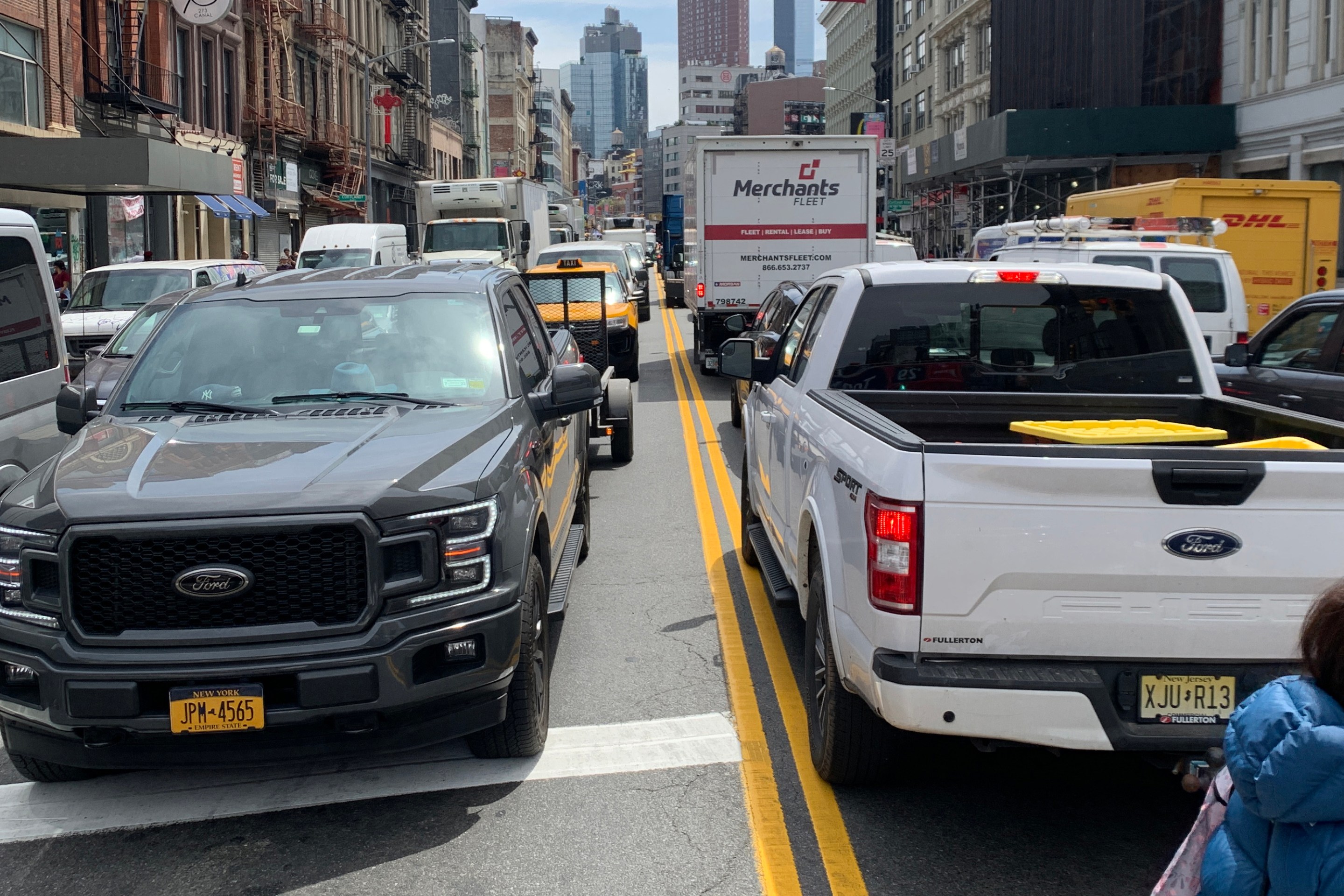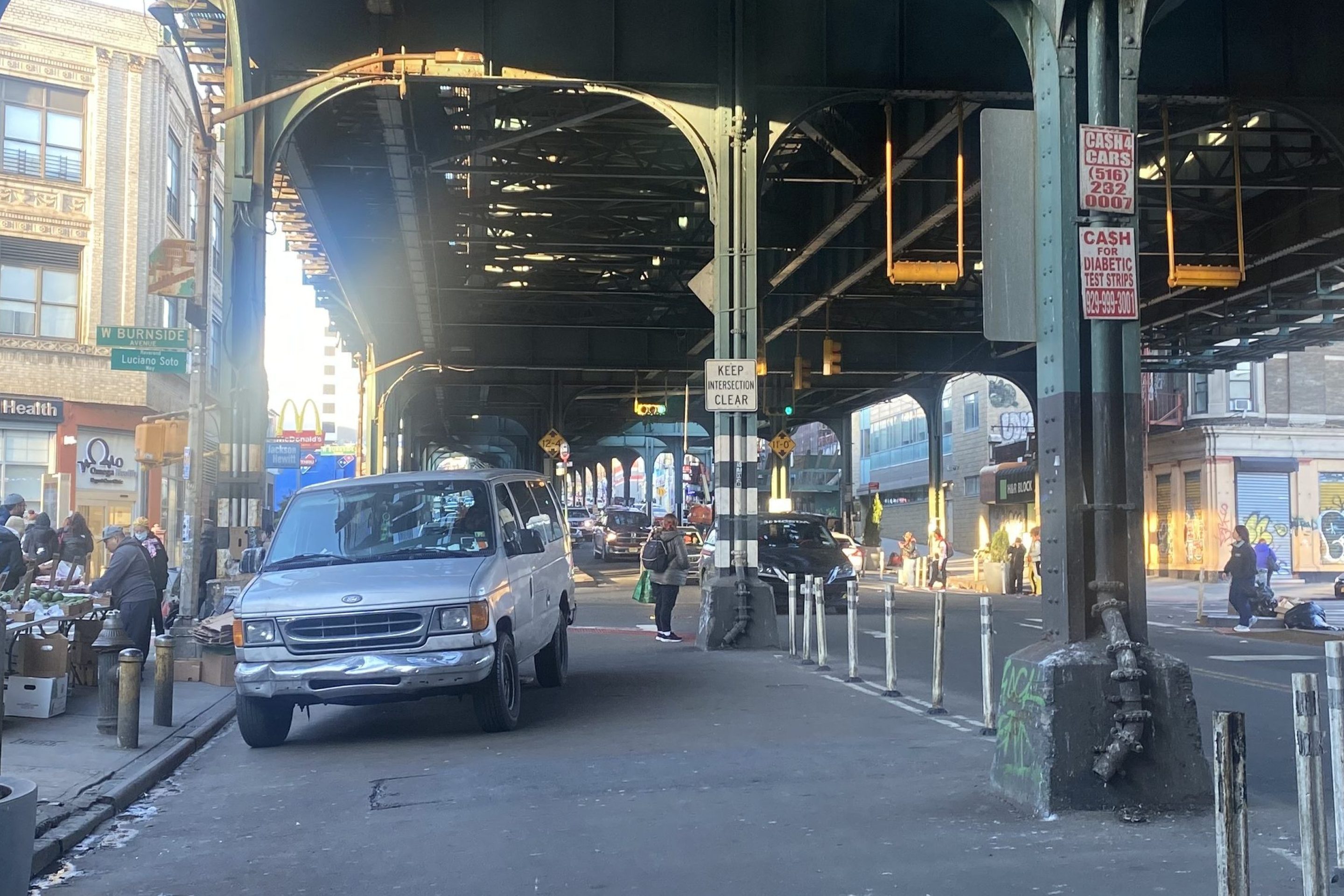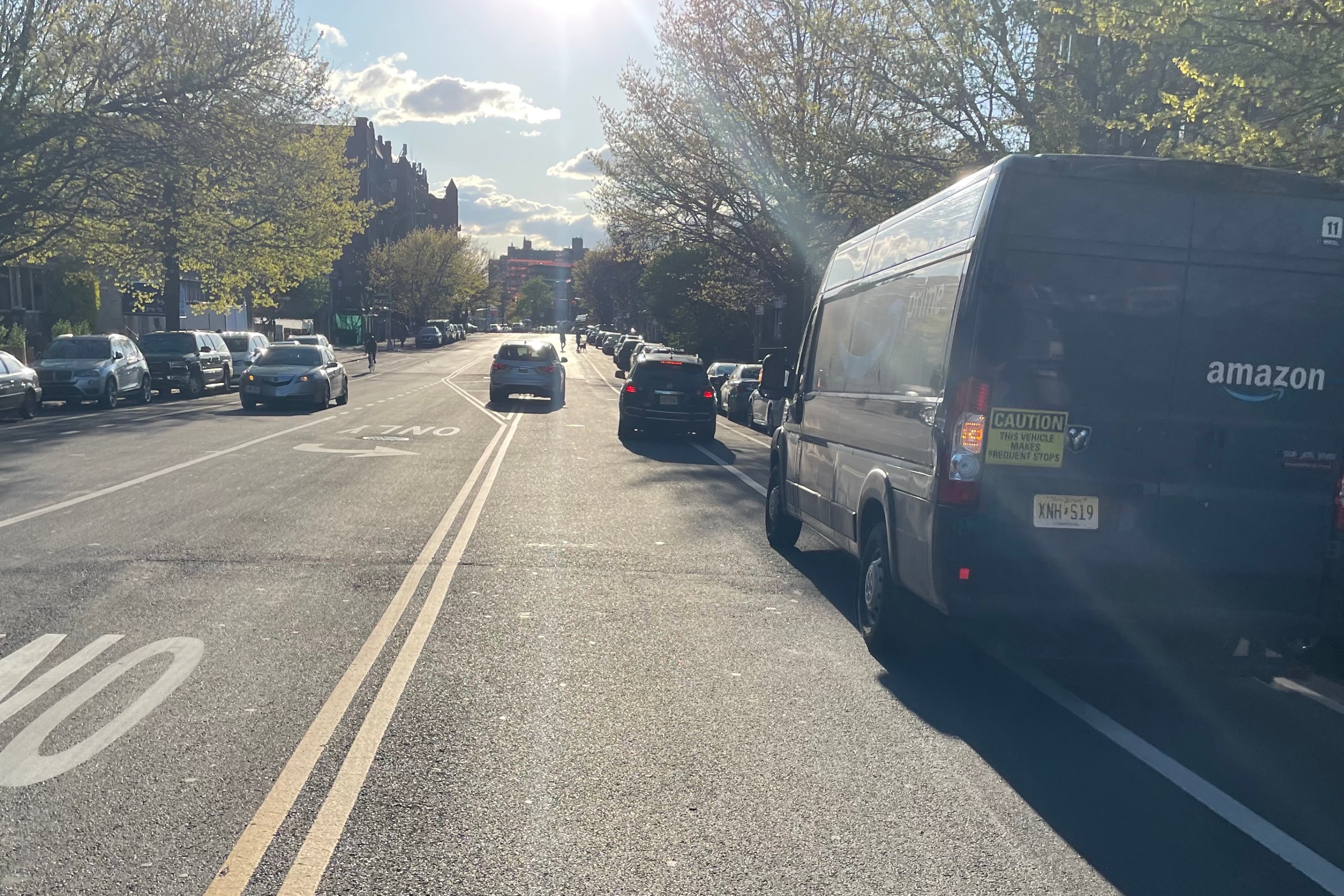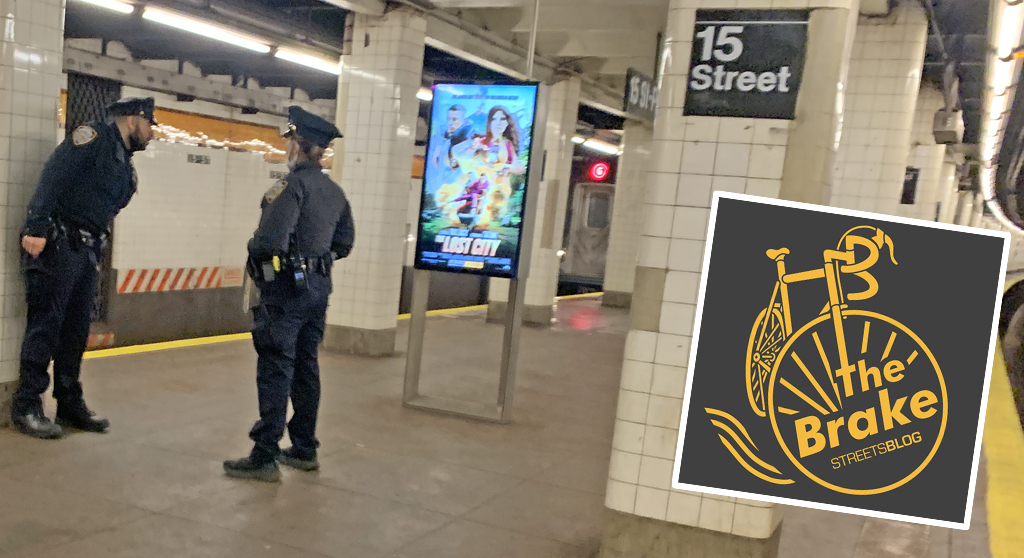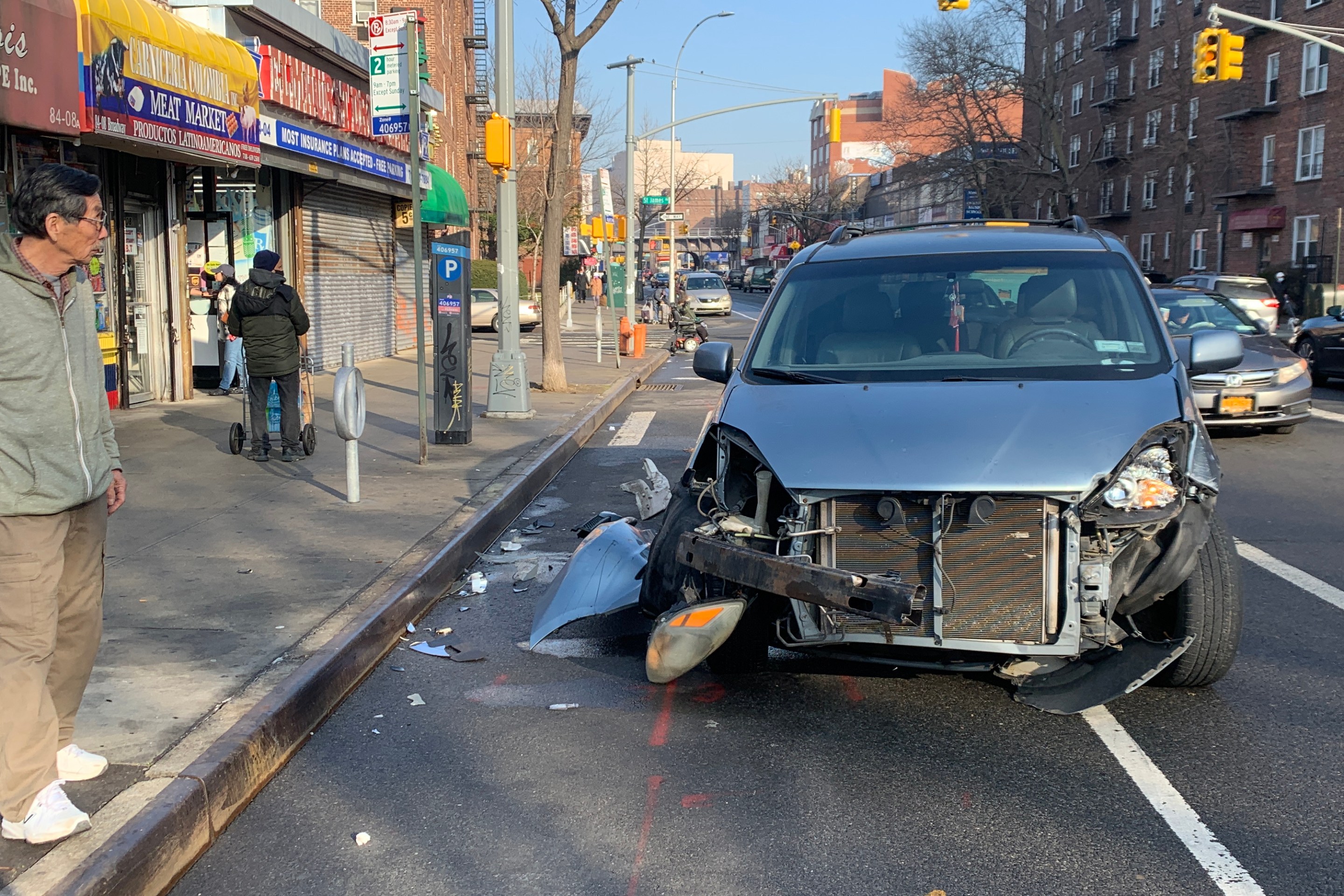Albany’s Residential Parking Program Won’t Be Good for New York City: Analysis
12:01 AM EDT on March 16, 2023
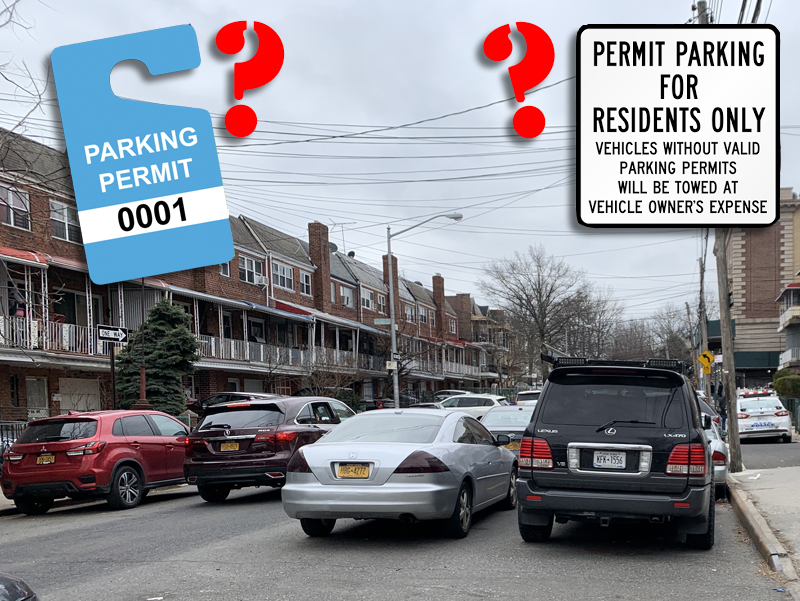
Is this really going to happen?
A Senate proposal to encourage New York City to create a Residential Parking Permit system won't help break the city's car culture, multiple studies show.
State lawmakers earlier this week revealed that they want New York City to impose a residential parking permit program and have the revenue from it go towards funding the cash-strapped MTA. Drivers would pay no more than $30 a month to park curbside in their neighborhoods — in an attempt to not only reduce carbon emissions, but also beef up transit.
“Emissions from idling vehicles that are stopped or standing, or from vehicles continually looping around their neighborhoods in search of parking, can have deleterious health impacts on the state's most vulnerable populations,” the bill says.
The proposal is light on details, which would mainly be left to the City Council to determine, but it includes provisions like “may make no less than 20 percent of all spaces within the permit area available to non-residents,” and “may provide short-term parking for not less than 90 minutes in duration in such area.”
Currently, in New York City, there are roughly three million free parking spaces. If the program were implemented at $30 a month, residents would pay $360 annually, raising about $400 million a year, according to state Sen. Michael Gianaris (D–Astoria), the Senate Deputy Leader.
”If it works properly, it will keep people from outside our neighborhoods from dropping cars off on city street and clogging streets," said Gianaris. "If we can encourage people from other areas to use mass transit and spend less time using our neighborhoods as a parking lot, we will have been successful.
Residential parking permits = the giant transportation nothingburger that won’t go away https://t.co/VTZ6DWmbK5
— Jon Orcutt (@jonorcutt) March 15, 2023
Many large cities around the world already have residential parking permits in place, including in Boston, San Francisco, Chicago, and London. And some legislators are on board with the proposal, claiming it will relieve congestion and end the practice of drivers circling local roads to find a spot — not just contributing to pollution, but to dangerous streets.
But it's not clear that such a program would do as state lawmakers intend.
A report published in 2019 by then-Manhattan Borough President Gale Brewer, now a Council member, found all sorts of problems, and concluded that, at best, "the results have been a mixed bag, with some cities left wondering if creating a permit parking program was the right choice in the first place."
"Case studies show that low, flat-fees do more harm than good by incentivizing further vehicle ownership, as most strongly evidenced in the Boston and Chicago cases."
In The Hub of the Universe, the number of permits issued grew 41 percent between 2006 and 2019, a suggestion that car ownership increased. Then-council member (now Boston Mayor) Michelle Wu declared at the time that the program was not working — albeit for the fact that the permits at the time were free for Bostonians.
"People are circling around, frustrated, trying to find parking. … When we have a system that charges nothing, there’s no incentive to have better parking management," said Wu, who recommended charging for the permits.
In London, where the cost of a permit is based on a vehicle’s size and emissions, a similar problem arose.
In the Tower Hamlet neighborhood just east of downtown London, for example, the goal was to "reduce congestion and emissions" and manage curbside space, but the neighborhood ended up experiencing "massive growth in the number of permits issued in the last several years, especially relative to the number of spaces available."
Between 2014 and 2018, Tower Hamlet issued an additional 6,229 resident permits while the number of available spaces increased by only 65. As of 2019, the borough had issued 38,993 resident permits for the 12,768 parking spaces available — a ratio of three permits for every one space available, according to the study.
A London business-boosting group that analyzed the program did ultimately endorse it, but also discovered several flaws, including that "demand for parking outweighs the supply" and that "residents who pay for permits are dismayed when they realize that their payments do not make the parking experience noticeably easier."
In Chicago, where residents paid a flat fee of $25 annually for parking permits, the city failed to keep track of how many permits were being issued, leading to over saturation and frustration.
"Chicago has left permit holders frustrated primarily due to an imbalance of supply versus demand," the report says.
And in San Francisco, which instituted its residential parking program in 1976 "in response to increasing commuter traffic and parking in residential neighborhood," an analysis revealed that residents in two high-density neighborhood still spent more than 16 minutes circling for parking, with 22 percent of drivers spending more than half an hour doing so.
Overall, residential parking permits amount to a “big nothingburger," said Bike New York's Jon Orcutt, who previously worked for the Department of Transportation during the Bloomberg administration, and who contributed to the report.
Residential parking permits = the giant transportation nothingburger that won’t go away https://t.co/VTZ6DWmbK5
— Jon Orcutt (@jonorcutt) March 15, 2023
And according to Donald Shoup, a professor of Urban Planning at UCLA, the $30 monthly fee is too low, calling it a public subsidy for drivers. Instead, Shoup, who is the nation's leading expert on parking, calls for market-rate pricing on par with what parking garages are charging in each respective neighborhood.
"I think the $30 is pulled out of thin air," he said. "The land in New York is the most valuable land on earth — offering it at $30 [per month] is a subsidy for cars. We should avoid parking subsidies."
And other critics say selling curbside space to drivers could dangerously privatize the curb, making it more politically difficult to install anything in that public space, like a bike lane or Citi Bike dock, because car owners, who already believe the curbside lane is set aside for the storage of their vehicles, would have an ownership stake.
“It nails down the idea that curbs are not at the discretion of the city, but bought and paid for by motorists,” said Orcutt, who added that he’s skeptical that it would even happen in New York since it didn’t do anything to reduce car dependence in other cities like Boston and Cambridge.
“It’s always held up as a thing that's gonna help people with cars. Go to Boston, Cambridge, places with parking permits, it doesn't make a difference, and the city is as car-dependent as ever,” he said.
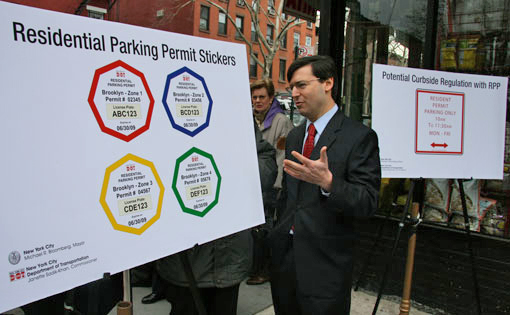
And for transit advocates, the city and state should instead focus on getting people out of private cars and onto mass transit, not worrying about privatizing the curb.
“The real issue here is how so much of New York City’s public space is dominated by permanent, private car storage in a city where the majority of people do not drive,” said Elizabeth Adams, senior director of Organizing and Advocacy at Transportation Alternatives. “We must rebuild streets and communities that serve people & mobility first, and curb parking should be converted to protected bus lanes, bike parking, green space, and public seating, instead of permanent car storage. We shouldn’t be privatizing our public space — the climate crisis demands that our city and state government incentivize green, reliable transportation — not residential parking permits.”
The idea for residential parking permits in New York City has been around for more than a decade. Ex-Mayor Mike Bloomberg proposed instituting Residential Parking Permits in 2008 as part of his congestion pricing plan. And several members of the City Council tried again in 2011 and 2018 to pass similar schemes.
Department of Transportation Commissioner Ydanis Rodriguez has been on the record as supportive of the idea. He first put forward a bill in 2018 with then-Council Member Stephen Levin (D–Brooklyn Heights) requiring the DOT to implement a citywide residential parking permit system.
$30/month max for parking on NYC streets at night. It should be more like $200/month in most of the city.
— Jehiah (@jehiah) March 15, 2023
Is it progress to start at $30 and work to raise it? Possibly. https://t.co/ML4iL0oUuJ
But Rodriguez's personal beliefs are at odds with his own agency, which testified against the program.
“Previous observations by DOT have indicated that there may be fewer outsider vehicles in New York City neighborhoods than people may perceive, with many actually belonging to local residents,” First Deputy Commissioner Margaret Forgione said at the time, Streetsblog reported. “In New York City, on-street parking scarcity is mainly driven by the large number of resident-owned vehicles compared to the number of spaces available.”
Spokespeople for both City Hall and the City Council said they are reviewing the proposals. It could generate city support if the revenue from the permits earmarked for the MTA offset the $500 million in new transit funding Gov. Hochul is seeking from the city.
Julianne Cuba joined Streetsblog in February, 2019, after three years covering local news and politics at The Brooklyn Paper. There, she also covered the notoriously reckless private carting industry and hit-and-runs. A 2015 graduate of Stony Brook University’s School of Journalism Master’s Program, she lives in Brooklyn. Julianne is on Twitter at @julcuba. Email Julianne at julianne@streetsblog.org
Stay in touch
Sign up for our free newsletter
More from Streetsblog New York City
Friday’s Headlines: Canal Street Follies Edition
Manhattan Borough President Mark Levine isn't happy. Plus otherness.
Daylight Again: Bronx Community Board Backs Parking Ban at Intersections
The Boogie Down is down with daylighting!
Community Board Wants Protected Bike Lane on Empire Blvd.
Brooklyn Community Board 9 wants city to upgrade Empire Boulevard's frequently blocked bike lane, which serves as a gateway to Prospect Park.
The Brake: Why We Can’t End Violence on Transit With More Police
Are more cops the answer to violence against transit workers, or is it only driving societal tensions that make attacks more frequent?
Report: Road Violence Hits Record in First Quarter of 2024
Sixty people died in the first three months of the year, 50 percent more than the first quarter of 2018, which was the safest opening three months of any Vision Zero year.
